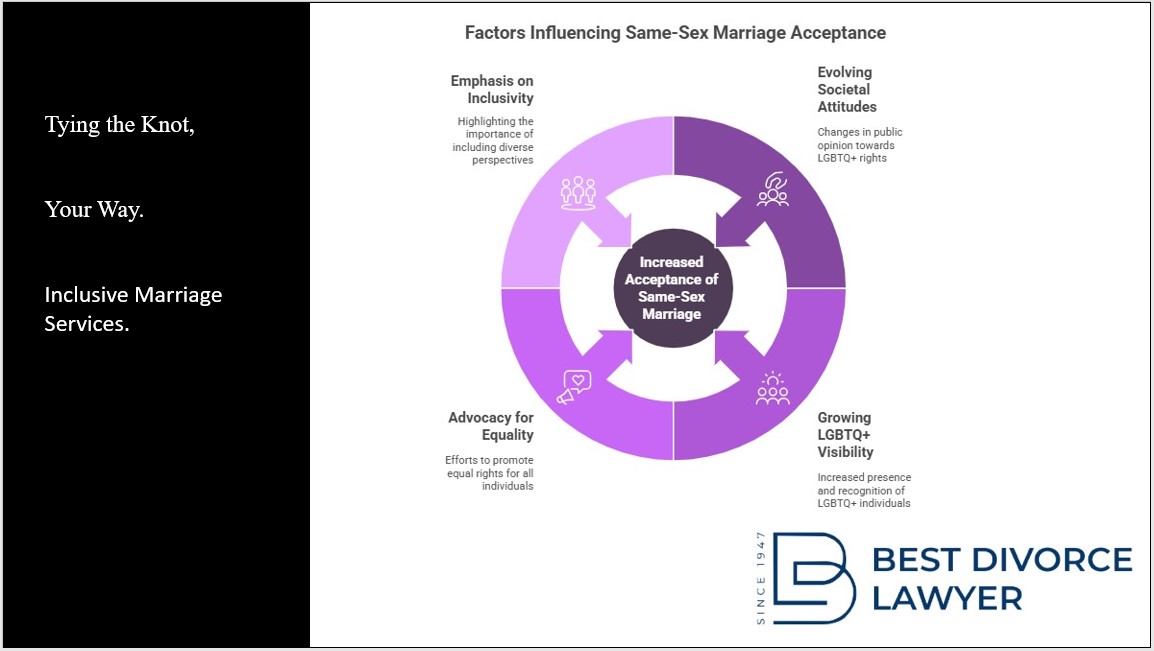Introduction
Same-sex marriage is a critical issue in India, where legal and cultural barriers hinder progress. Gurugram, a corporate hub with a young, globalized population, is a key player in the push for same-sex marriage. As of June 2025, same-sex marriage is not legally recognized in India, but Gurugram’s progressive urban culture drives advocacy. This blog explores the legal status, judicial developments, societal challenges, local resources, and future prospects for same-sex marriage in Gurugram.
Table of Contents

Current Legal Status of Same-Sex Marriage in Gurugram
India’s marriage laws, such as the Hindu Marriage Act, 1955, and Special Marriage Act, 1954, define marriage as a heterosexual union, excluding same-sex couples. In Gurugram, where corporate professionals and NRIs form a significant demographic, these laws prevent same-sex couples from accessing marriage-related rights. Gurugram’s Family Court adheres to these laws, forcing couples to rely on cohabitation agreements.
Gurugram’s globalized environment, with its IT parks and multinational companies, fosters a progressive outlook, making it a hub for same-sex marriage advocacy through events like the Gurugram Queer Pride Walk.
Key Judicial Milestones Impacting Gurugram
Gurugram’s legal landscape is influenced by:
- Navtej Singh Johar v. Union of India (2018): Decriminalized homosexuality, empowering Gurugram’s LGBTQ+ community.
- Supriyo v. Union of India (2023): Deferred same-sex marriage to Parliament but urged non-discrimination and social security benefits.
- Transgender Persons (Protection of Rights) Act, 2019: Supports transgender rights, sparking gender-neutral law discussions.
Personal Laws and Their Limitations in Gurugram
Gurugram’s population adheres to:
- Hindu Marriage Act, 1955: Excludes same-sex couples, prevalent in areas like DLF Phase.
- Special Marriage Act, 1954: Limits marriage to “male” and “female” partners.
- Muslim and Christian Laws: Define marriage as heterosexual, applied in areas like Sector 56.
These laws restrict same-sex marriage in Gurugram’s courts.
Societal and Cultural Challenges in Gurugram
Gurugram’s social dynamics include:
- Religious Opposition: In Gurugram, as in much of India, the deeply ingrained tenets of Hinduism and other major religions like Islam and Sikhism predominantly define marriage as a sacred union between a man and a woman. These religious frameworks often emphasize marriage for procreation and the continuation of family lineages, aligning it with specific rituals and traditions that are inherently heterosexual. While Gurugram is a modern city, many of its residents, whether native to Haryana or migrants from other parts of India, carry these traditional religious beliefs. This religious perspective often forms the basis of social objections to same-sex marriage, making it challenging for legislative or societal acceptance, as religious leaders and communities often advocate for upholding these long-standing definitions of matrimony.
- Family Pressure: The strong emphasis on family honor, tradition, and community standing is a significant factor in Gurugram, particularly within more conservative families. For such families, the concept of marriage is often intrinsically linked to arranged unions, where parents or elders play a pivotal role in selecting a suitable heterosexual partner. This practice is driven by a desire to ensure social compatibility, economic stability, and the continuation of the family name.
- Urban-Rural Divide: Gurugram, despite its glittering high-rises and international corporate presence, exists within a broader regional context that includes more traditional rural areas of Haryana. While the city’s cosmopolitan core, particularly areas populated by young professionals and multinational companies, tends to exhibit more progressive attitudes towards LGBTQ+ rights and same-sex relationships, the surrounding villages and older parts of the district often adhere to deeply conservative social norms. This creates a stark dichotomy: a modern, inclusive urban bubble coexisting with traditional, often less tolerant rural communities.
Legal Rights for Same-Sex Couples in Gurugram
Gurugram’s same-sex couples can access:
- Cohabitation Rights: Live-in relationship protections.
- Anti-Discrimination Protections: Protection from harassment.
- Adoption and Succession: Individual adoption allowed, succession requires wills.
City-Specific Support Systems in Gurugram
Gurugram offers:
- HSLSA: Free legal aid for LGBTQ+ individuals.
- NGOs: Sappho for Equality provides counseling and legal aid.
- Pride Events: Gurugram Queer Pride Walk promotes advocacy.
Future Prospects for Same-Sex Marriage in Gurugram
Gurugram’s path forward includes:
Challenges to Legalization
- Political Resistance: Conservative voter bases.
- Religious Pushback: Opposition from religious institutions.
- Legal Complexity: Harmonizing personal laws.
Potential Pathways Forward
- Incremental Reforms: Granting cohabitation and inheritance rights.
- Public Awareness: Leveraging Gurugram’s corporate culture.
- International Influence: Global advocacy impacts Gurugram
Conclusion
The journey towards marriage equality for same-sex couples in India is a complex and evolving one. While the Supreme Court’s 2018 decriminalization of homosexuality was a landmark victory for LGBTQ+ rights, the subsequent decision in October 2023 to leave the legalization of same-sex marriage to Parliament highlights the ongoing challenges. Gurugram’s progressive culture and NGOs like Sappho for Equality drive same-sex marriage advocacy.
For legal assistance, call +91 9461620006 or visit www.bestdivorcelawyer.in today!


